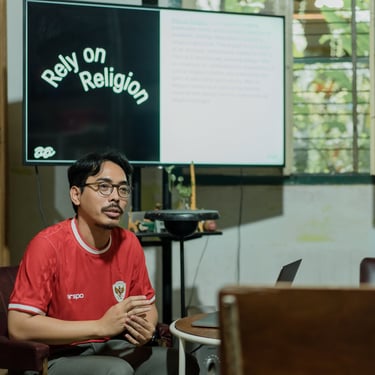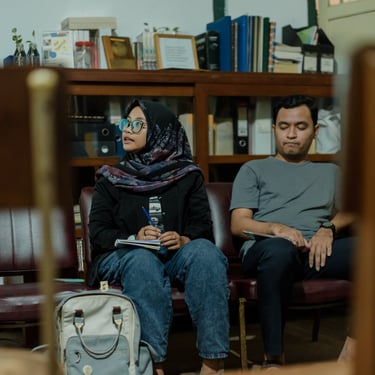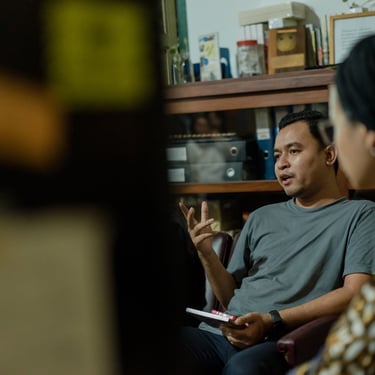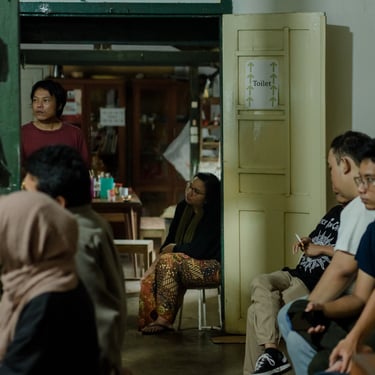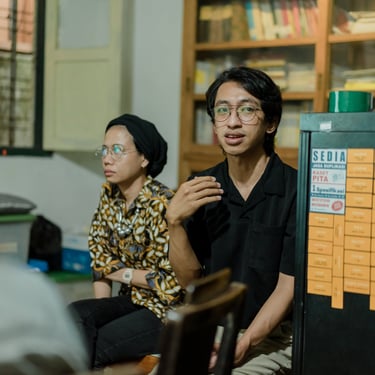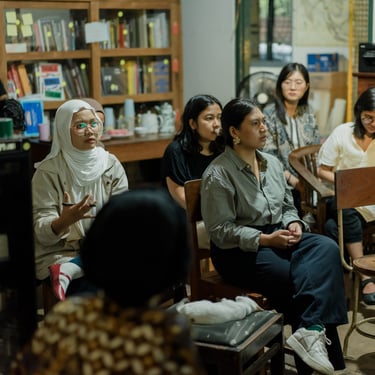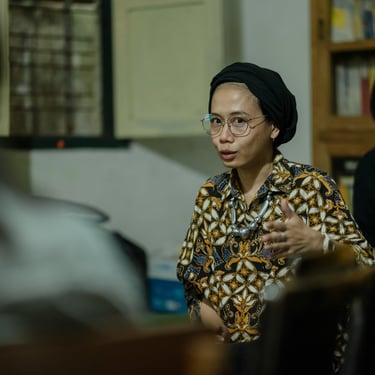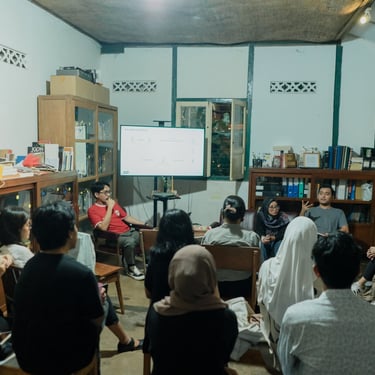Contours of Conviction: Exploring Indonesia's Religious Dynamics
In a harmonious blend of scholarly inquiry and artistic presentation, the release event for the first volume of Rely on Religion unfolded amidst the gentle rain and warm camaraderie of Yogyakarta. Held at the prestigious KUNCI Study Forum & Collective, the event on April 25th captivated attendees with its exploration of how religious communities in Indonesia navigate and negotiate within the country's dynamic political milieu.
Arunika Wiratama
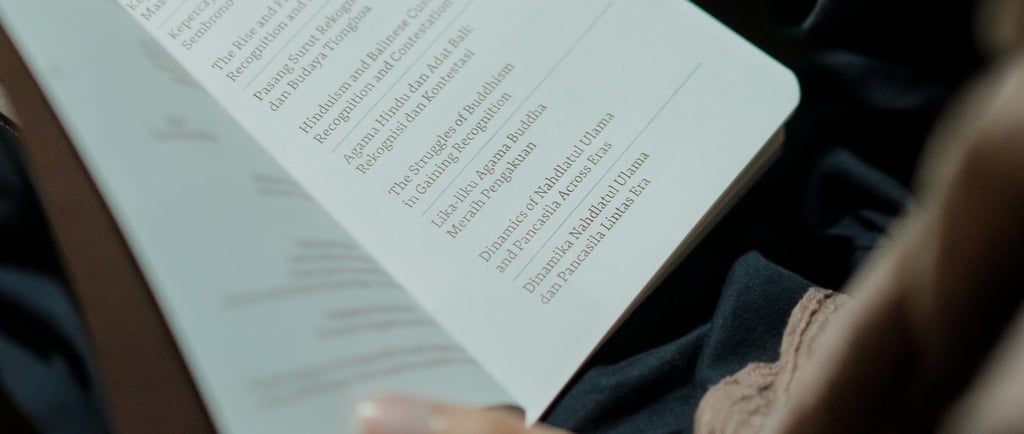

In the midst of a gentle Yogyakarta rain, the city’s heart beat a little warmer as colleagues and friends gathered for the highly anticipated release of The Significance of the Indonesian Political Landscape for Religion. This event marked the debut of the "Rely on Religion" series, a pioneering effort to delve into the intricate interplay between religion and politics in Indonesia. The book, authored by Azis Anwar Fachrudin, Haris Fatwa Dinal Maula, Krisharyanto Umbu Deta, and Nadila Ika Arifianti, offers a rich tapestry of case studies that illuminate the adaptation, contestation, and negotiation of religious communities within the nation’s complex political landscape.
The event took place at the revered KUNCI Study Forum & Collective on April 25th, beginning at the tranquil hour of 16:00. Rifki Akbar Pratama, serving as both the moderator and a representative of KUNCI, welcomed the attendees with an opening address that set the tone for the afternoon. The gathering then transitioned into a dynamic discussion session, starting with a compelling presentation by Nadila Ika Arifianti. Nadila shared profound insights from her writing, focusing on the fluctuating recognition and status of local faith groups in Indonesia. Her narrative painted a vivid picture of the challenges and triumphs experienced by these communities.
Following Nadila's enlightening presentation, Krisharyanto Umbu Deta took the stage to discuss pressing issues faced by the Hindu community in Indonesia, including internal conflicts and governmental tensions. His analysis, rooted in his article for the publication, provided a thorough examination of the socio-political intricacies affecting Hindu practices and beliefs in contemporary Indonesia.
The discourse was further enriched by the thoughtful responses of Sita Hidayah, whose expertise in anthropology brought an added layer of depth to the discussion. Sita’s perspectives on religious and cultural knowledge offered a unique lens through which to view the broader implications of the book’s themes.
Beyond the intellectual content, the publication itself is a testament to mindful production practices. Printed with eco-friendly soy-based ink on sustainably sourced paper, the book’s design by Fine, Great Studio blends rigorous academic discourse with the dynamic presentation style of an art book. This innovative approach not only enhances the reader’s experience but also aligns with sustainable and ethical production values.
This project represents a significant endeavor to distribute knowledge and foster academic discourse beyond the confines of university classrooms. By merging the meticulous analysis typical of scholarly works with an engaging and accessible format, The Significance of the Indonesian Political Landscape for Religion aims to reach a broader audience, sparking dialogue and reflection on the vital intersections of faith and governance in Indonesia.
As the rain continued to fall outside, the warmth of shared ideas and spirited conversation filled the KUNCI Study Forum & Collective. The event marked the beginning of a new chapter in the exploration of Indonesia's religious and political landscape, promising further insights and discussions in the future.
